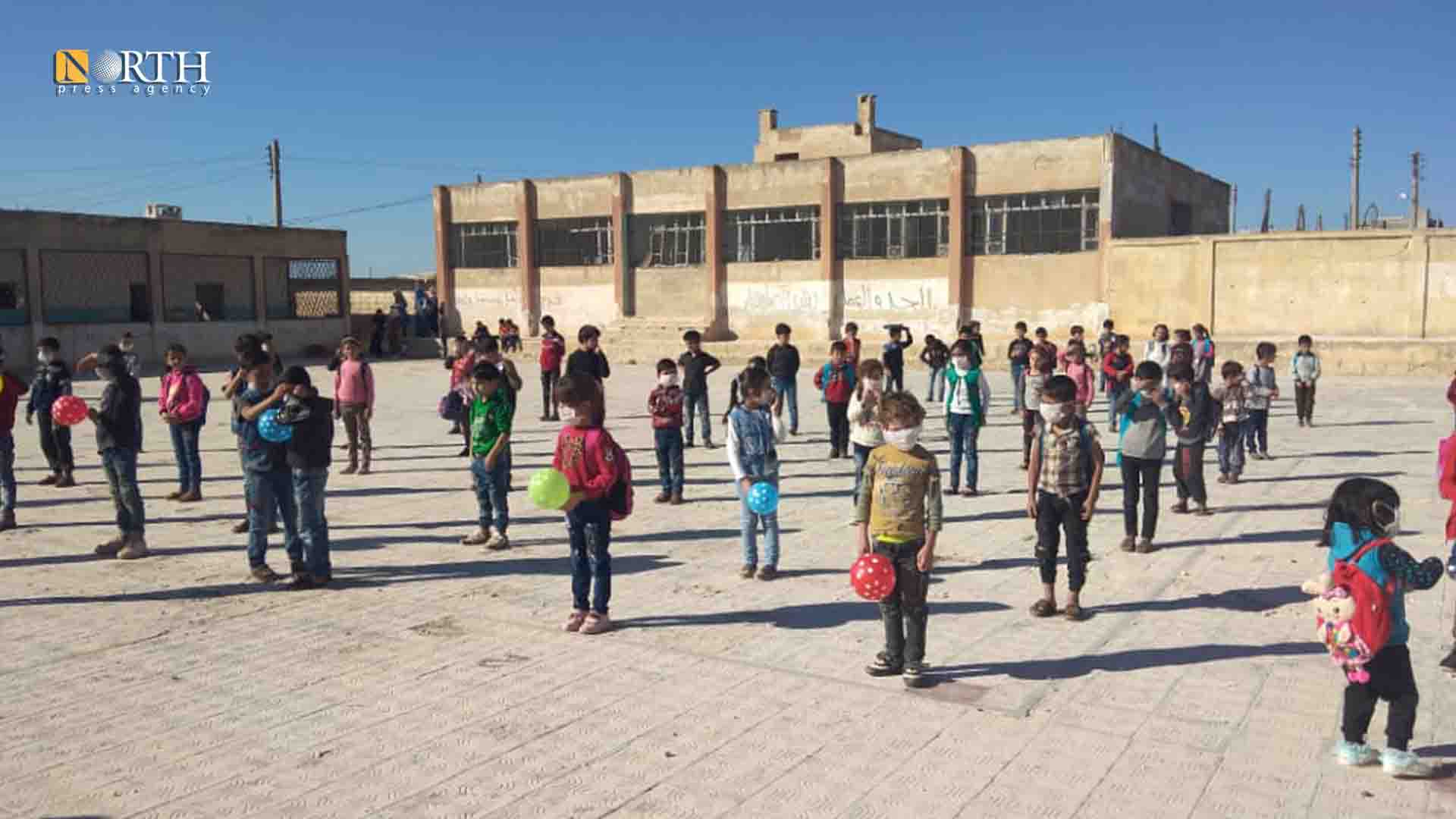IDLIB, Syria (North Press) – The education sector in northwest Syria’s Idlib and its countryside has been facing major difficulties for years and suffering from a shortage in the support by donors, causing thousands students to abandon their education and teachers to abandon their professions.
Schools in Idlib and its northern countryside have received support from some humanitarian organizations, while schools of the southern countryside of Idlib did not receive any support.
The shortage was due to the military operations in the southern Idlib countryside, according to teachers.
There are about 25,000 students and about 1,540 teachers in Zawiya Mountain, including 892 volunteer teachers, according to the Educational Complex in Ariha city.
There were 83 schools in Zawiya Mountain, including 16 schools that were totally damaged and six schools that were partially damaged, Muhammad Aatiq, the head of the Educational Complex in Ariha city, said.
“Schools’ funding has stopped for more than a year and a half, leaving schools in deteriorating conditions. This year 55 schools were totally opened and six were partially opened,” he added.
Hassan Asa’ad, the principal of Maghara School in the countryside of Idlib, told North Press that they turned the local council of the village into an elementary school because the village school was damaged in February.
“The building has one small crowded classroom that lacks educational tools, equipment, and everything that makes it a school,” he stated.
“Teachers have not received their salaries since April 2019, so they are looking for another profession to secure their needs,” according to Asa’ad.
People of the village, who returned to their house amid fears of being targeted and shelled, were worried about the future of their children after the closing of the intermediate and secondary schools.
“The Education Board provides us only with books that we receive at the end of the academic year,” he stated regarding the role of Idlib Education Board.
“Education is experiencing its worst phase, especially for the intermediate stage; we could not secure a building or even volunteer teachers,” he added.
North Press was not able to contact the Idlib Board of Education for comment regarding the shortage of support in the southern Idlib countryside.
There was not a big difference regarding the education situation in the town of Blayon from its neighboring Maghara village, where only three schools opened, including about 400 students, Hosam Khatib, the principal of Blayon School, told North Press.
“There is a severe shortage of support for the intermediate and secondary schools, let alone the security condition that the area has been witnessing,” according to Khatib.
“Additionally, only one school receives support from an organization, while others have not received any support since last year,” he said.
Meanwhile, many teachers have abstained from working voluntarily in schools because they have not received their wages for more than two months, according to Khaled Haj Ahmad, a teacher in the city of Ariha.
About 2,800 teachers abandoned teaching last year after the organizations’ support stopped, according to Haj Ahmad.

